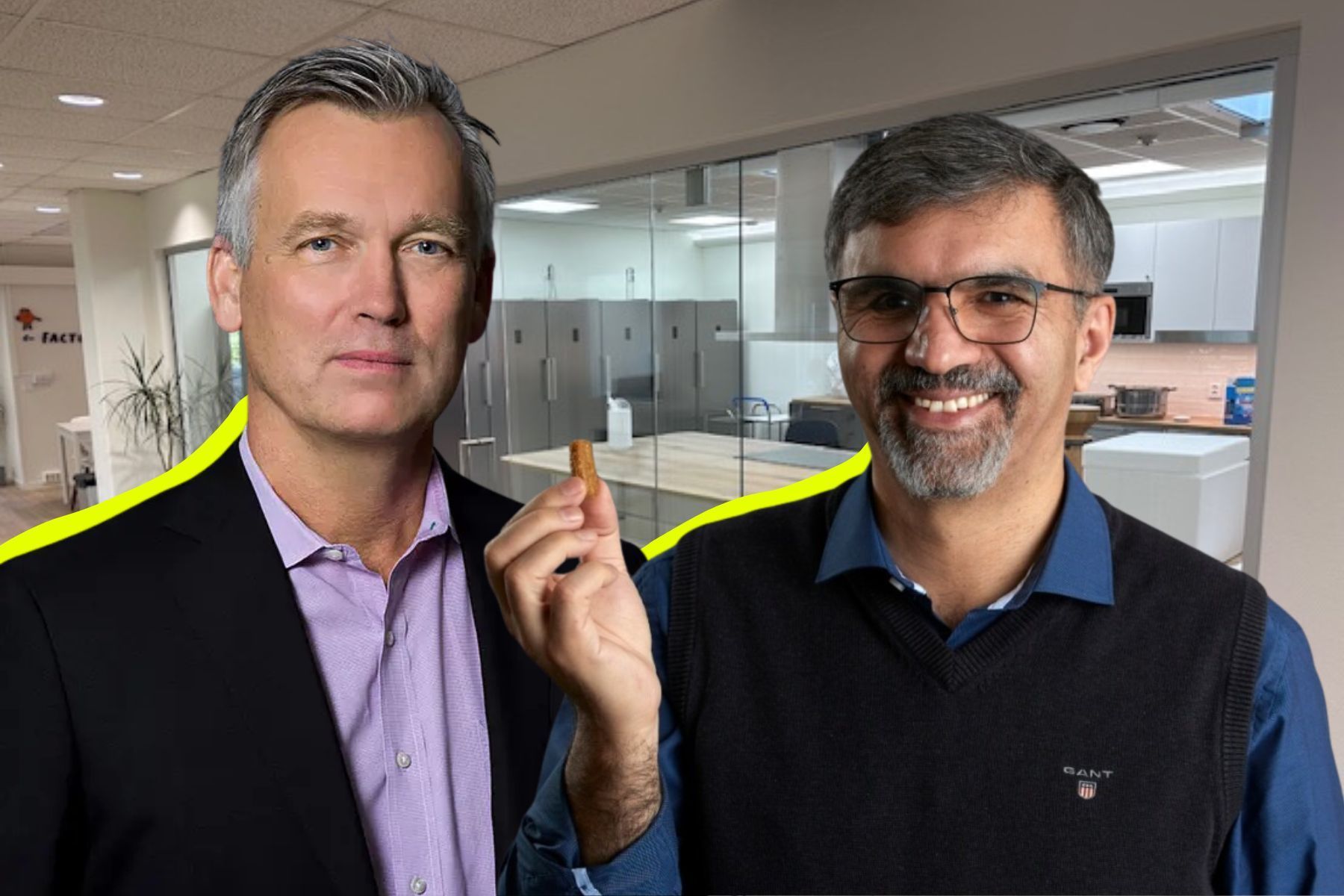Swedish entrepreneurs take on plant-based mince with new mycoprotein factory
When Swedish foodtech star Mycorena went bust last year, it was a big hit to the country's ambitions for a homegrown mycelium champion. <br><br>Now, another startup from the same city is picking up the torch. In an interview with Impact Loop, Millow's chair Staffan Hillberg reveals:<br><br>→ More about the product: 'Just two ingredients'<br>→ The fresh funding and what it’ll be used for<br>→ How the designer behind Apple’s logo (!) is involved


Working with mycelium – the thread-like root structure of fungi – is hardly a novel idea in foodtech. Dozens of startups are looking to scale the technology, which uses precision fermentation to grow protein-rich biomass that can mimic the texture of meat, fish, or dairy.
Sweden's Mycorena made headlines with its fungus-based protein before it filed for bankruptcy last year, in a blow to the country's ambitions for a homegrown mycoprotein champion.
But as Mycorena fell apart, a few kilometres away in the same city of Gothenberg, Millow was quietly perfecting its own process. Staffan Hillberg, who describes himself as an "old entrepreneur," is an early investor in the company and sits on the board.
“I’ve helped build a number of tech companies over the years,” Hillberg tells Impact Loop. “I started my career at Apple in California, and later helped launch the internet business of Bonnier. I also ran the lighting company Heliospectra.”
Millow was founded in 2020, but the science predates the company. Its founder Mohammad Taherzadeh – a researcher specialising in industrial fermentation – approached Hillberg to join forces.
“A few of us put in our own capital and started working quietly. Originally, the company was called Svampsson – a cheeky Gothenburg pun, but maybe not the best fit internationally,” Hillberg laughs.
Funding runway
Millow’s early strategy was to keep its head down and develop the product while securing public research support.
It's first funding came from Sweden’s research council Formas. Millow recently landed a €2.4m grant from the EU’s EIC innovation programme. The company also raised €1m in equity from “experienced entrepreneurs in western Sweden”.
“The goal of this raise is to take Millow to a stage where we’re cashflow-positive and commercially viable, with technology co-developed alongside the food industry,” Hillberg says. “We want to make products people actually want to buy, and at the right price.”
Two ingredients, one mission
Millow is developing a mycelium-oat hybrid, produced via a patented fermentation process developed by Taherzadeh. Unlike traditional fermentation methods, such as the one used by Quorn, Millow’s approach doesn’t rely on sugar as a feedstock.
“In the conventional process, the fungi ‘eat’ sugar, which means you need purification steps and extra infrastructure. It’s energy and water intensive,” Hillberg explains. “Our method uses only around 2–3% of the water and about a third of the energy, cutting production costs significantly.”
The first product is a plant-based mince, but the company is also developing kebab-style strips and nugget-like “bites”, with plans to launch in the spring of 2026. Millow operates out of a 2,500-square-metre former Lego factory in Lerum, outside Gothenburg, complete with a test kitchen and lab. The new production line will eventually handle up to 450 tonnes annually.
Can it actually taste good?
That’s the question every plant-based startup has to face.
“We use just two ingredients, fungi and oats, with no additives,” Hillberg says. “That gives a natural texture, good bite, and a pleasant flavour. Many plant-based products have that soy or pea aftertaste, but we don’t.”
Branding by Apple’s designer
The next challenge will be bringing the product to market. And here’s where things take a creative twist.
“Our brand strategy was developed together with Rob Janoff, best known for designing Apple’s logo,” Hillberg reveals. “He and his team have done an amazing job.”
Instead of launching its own consumer brand – a move that would demand huge marketing and distribution muscle – Millow is starting B2B, supplying the foodservice sector through wholesalers like Martin & Servera.
“It’s faster, more efficient, and less capital-intensive,” says Hillberg. “Yes, you share margins, but you reach the market much quicker.”
Global ambitions rooted in Swedish oats
The aim is to scale fast and reach profitability. “We’ve had interest from all over the world,” says Hillberg. “But we have to start somewhere. Once production is running and we’ve proven the technology works, we can scale quickly and even license it. We’re using Swedish oats, but the concept is globally scalable."
Despite a slowdown in the alt-protein sector, Hillberg remains unfazed. “Markets move in cycles. I remember the Boo.com days, where everyone was rushing in the same direction at full speed. That era’s over. Now it’s about building things that last.”
Get full access to Europe's new platform for impact news
- Quality journalism, interviews, investor profiles and deep-dives
- Daily newsletter with top stories, latest funding rounds and roundup to keep you in the loop
Keep reading – get in the loop!
- Håll dig i loopen med vårt dagliga nyhetsbrev (gratis!)
- Full tillgång till daglig kvalitetsjournalistik med allt du behöver veta inom impact
- Affärsnätverk för entreprenörer och investerare med månatliga meetups
Fortsätt läsa – kom in i loopen!
- Håll dig i loopen med vårt dagliga nyhetsbrev (gratis)!
- Full tillgång till daglig kvalitetsjournalistik med allt du behöver veta inom impact
- Affärsnätverk för entreprenörer och investerare med månatliga meetups









